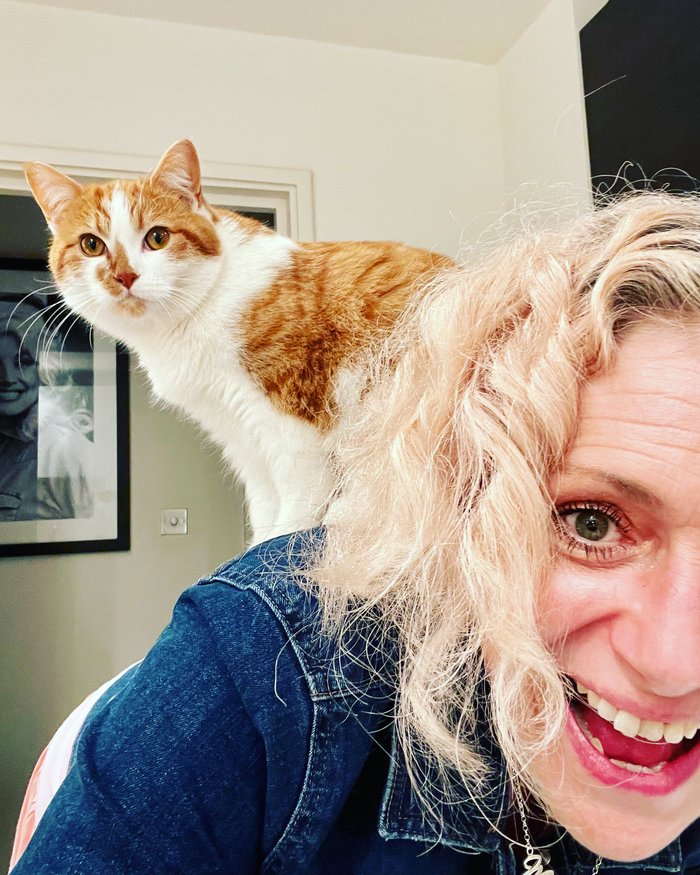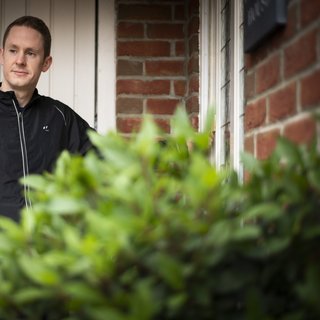Physically, I’m OK. Mentally, it’s been a struggle.
For Maggie, the psychological impact of having CML has been as hard to cope with as the cancer itself. She explains why it’s important to look after your mental health as well as managing your physical symptoms.

I was diagnosed with chronic myeloid leukaemia in 2012 at the age of 36. When the consultant first told me, the only thing I heard was "leukaemia, leukaemia, leukaemia". I thought it was a children’s disease. I’d had a few niggles with blurred eyesight and feeling rundown, but it never crossed my mind I might have cancer. My first question was “Am I going to die?”
Even after I understood that CML is a slow progressing, treatable cancer and that I would hopefully live a normal life, it took a long time to sink in. When I talked to my parents about it, they didn’t believe me, they thought I was protecting them by making things sound better than they were (largely driven by the fact they were consulting a very old health encyclopaedia – accuracy of information is another conversation!) It is quite confusing to wrap your head around, that you’ve got cancer but you’re probably going to be alright.
For me, that’s why the mental side of things feels so much bigger than the physical side once you’re on medication and things are brought under control.
CML is always in the back of your mind, even when you’re feeling well and going about your day as usual. It’s a huge adjustment, and the changes to your life, sense of self and routine all come at once. That’s very unsettling.
After several years on treatment which worked well for me, my consultant suggested reducing the dose of my daily medication in the hope of eventually trialling coming off it entirely. This sent me into another spin. I thought of the treatment as my safety net and what was ultimately keeping me alive. It had also taken me a long time to adapt to my new lifestyle and I was doing well, so there was a fear of undoing that and having to start again. What would happen if I needed to go back on the medication? Would it still work? Would I get the side effects again? I thought about it for a long time before I agreed to reduce my dose, and I wanted to do it really slowly over a number of years.
Tapering the medication felt like I was sitting on a ticking time bomb, waiting for the CML to potentially get worse again, but it hasn’t so far. Physically that’s great, obviously, but it’s a mentally exhausting process to go through. I’m glad I chose to do it slowly, because it gave me a better chance to adjust to yet another ‘new normal’ along the way.
It’s now two years since I stopped treatment completely and I’m still being closely monitored. My results vary slightly between my check-ups from undetectable levels of CML to very, very low levels, but I’ve come to accept that’s expected and nothing to worry about.
Even though I no longer need treatment, my CML isn’t ‘cured’ – it’s a cancer that’s managed, it’ll never completely go away. I’m living with it, and this is another challenge for my mental health. There’s always that uncertainty.
I’ve had some counselling along the way, and that’s helped a lot. It’s really important to identify when you need extra support. Don’t be afraid to talk about how you really feel, and don’t underestimate how much living with blood cancer might affect you, even if your results and prognosis are good. Everyone’s different, and it’s OK to admit that you’re not feeling fine even if everything seems like it’s going fine.
There are so many ups and downs when you have a chronic cancer like CML, and you have to take things at your own pace and advocate for yourself or you’ll get completely overwhelmed.
What works for you will be personal to you, but I’d like to see more people speak up and start conversations about this, from doctors and nurses to charities and support groups. Most people know where they can find information or ask questions about symptoms and side effects and all the medical stuff, but in a lot of places there doesn’t seem to be as much focus on how you’re doing psychologically.
Your mental health is just as important as your physical health, and it’s worth just as much care and attention.


